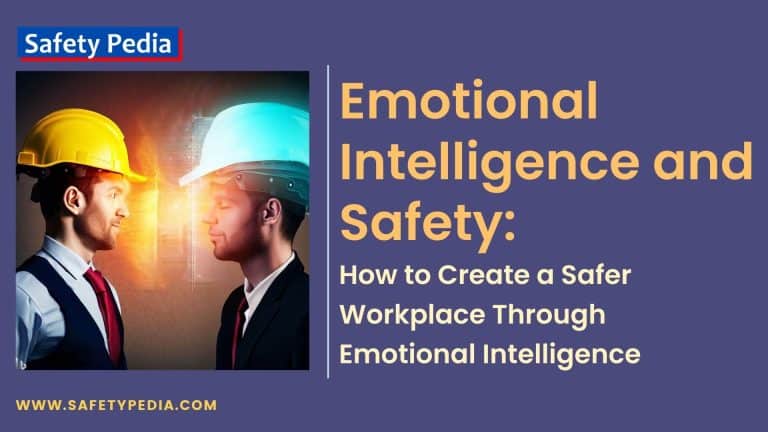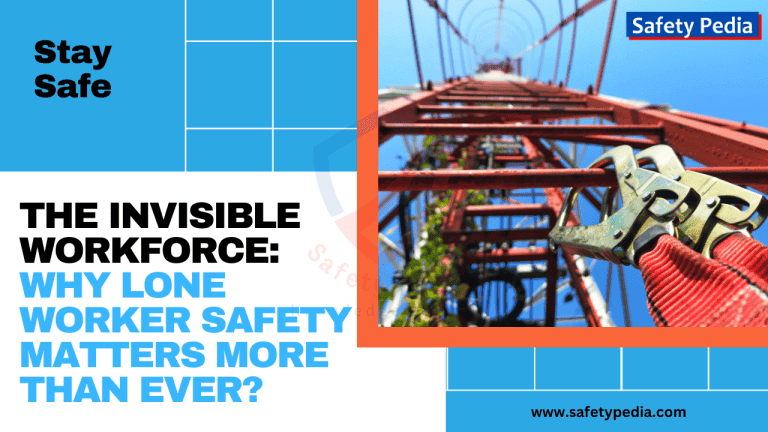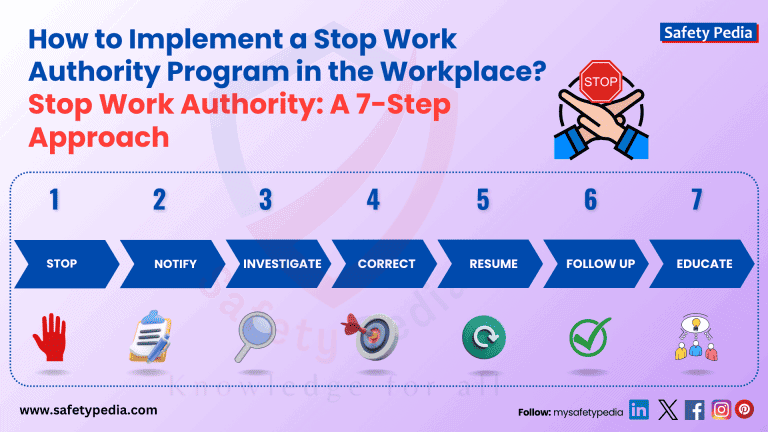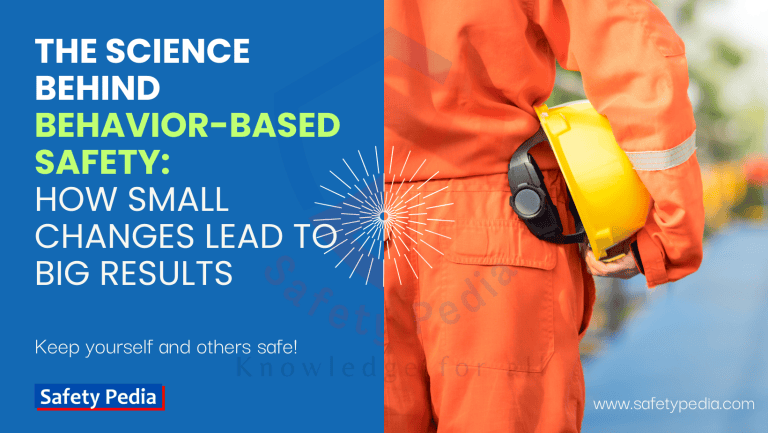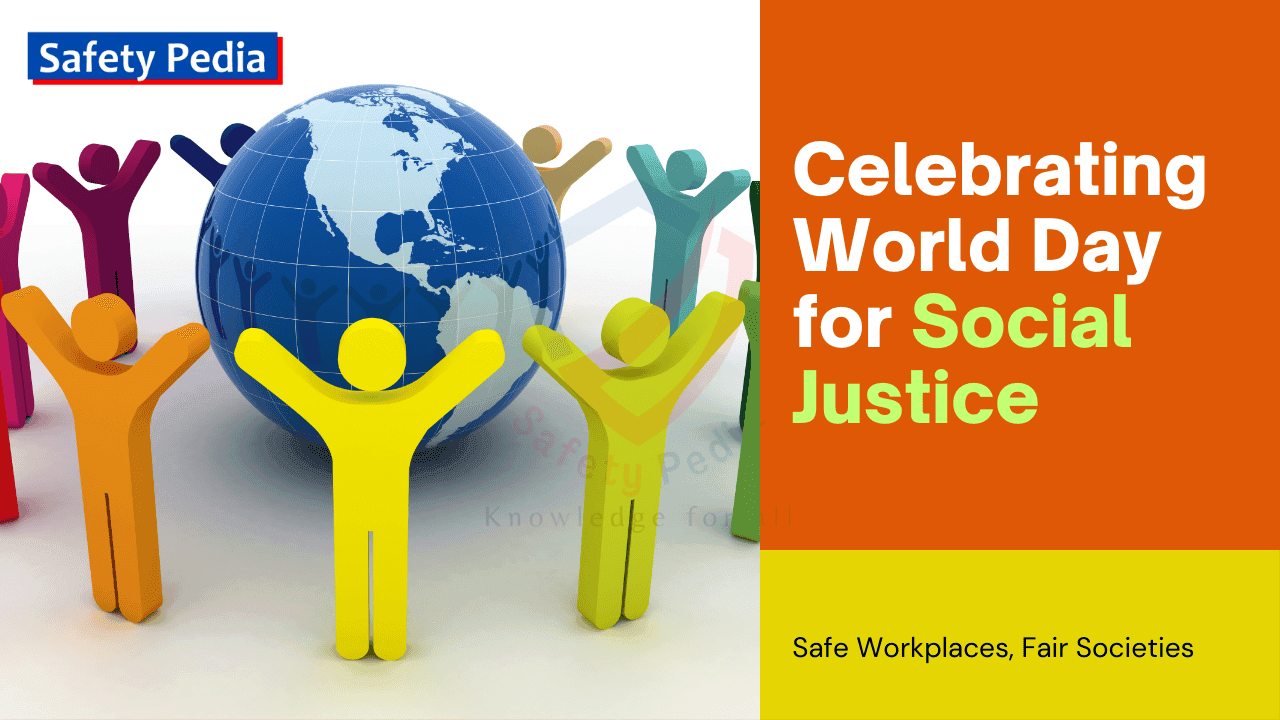
Introduction – World Day for Social Justice
In a world where social justice is at the forefront of conversations and aspirations, it is crucial to take actionable steps toward promoting equality and safety for all. Social Justice Day is a powerful reminder of the ongoing battle against discrimination and inequality. This guide highlights the importance of ensuring safety for all individuals and provides effective strategies to achieve this goal.
In today’s society, where marginalized communities face various forms of oppression, individuals, organizations, and communities need to come together to create safe spaces. This article will explore how adopting inclusive policies, implementing anti-discrimination measures, and promoting empathy can contribute to a safer and more just society.
This guide, which examines real-life examples and expert advice, is a valuable resource for anyone looking to champion social justice and support the rights and well-being of all individuals. Let us embark on this journey together, equipping ourselves with the knowledge and tools needed to make a lasting impact on the path towards a more just and inclusive world.
What is Social Justice Day?
Social Justice Day is an annual observance highlighting the need for equal rights and opportunities for all individuals, regardless of race, gender, religion, or social status. It serves as a platform to raise awareness about marginalized communities’ injustices and promote fairness and equality. This day allows individuals and communities to engage in meaningful discussions, organize events, and take actions that contribute to a more just society.
Understanding its fundamental principles is essential to grasping the essence of social justice. Social justice ensures that every individual has equal rights and opportunities, regardless of background or identity. This concept encompasses many issues, including economic equity, human rights, environmental justice, and access to essential services. Social justice seeks to dismantle the systems that perpetuate inequality and oppression, advocating for a fair distribution of resources and opportunities for all.
A crucial aspect of social justice is recognizing the interconnectedness of various societal issues. For instance, economic disparities often intersect with issues of race, gender, and class, leading to compounded disadvantages for marginalized groups. Understanding social justice requires a holistic approach considering these intersections, enabling us to create more effective strategies for addressing inequalities. By acknowledging the complexity of social issues, we can develop more inclusive and impactful solutions.
Furthermore, education plays a pivotal role in promoting social justice. By raising awareness and providing individuals with the knowledge they need to advocate for themselves and their communities, we empower them to challenge injustices. Education stimulates critical thinking and cultivates empathy and understanding among diverse groups. An educated populace is better equipped to recognize social injustices and work collaboratively to dismantle the barriers that impede equality, making education a cornerstone of any social justice movement.
Social Justice at the Heart of Policy Agendas
Momentum is building around the idea that social justice should be central to national and international policy agendas. Proponents argue that societies and economies function more cohesively when the focus is on social justice. The core of this approach emphasizes promoting decent work, upholding fundamental rights, creating employment opportunities, ensuring social protection, and fostering constructive dialogue between governments, employers, and workers.
Despite the enthusiasm, advocates stress that injustices, high inequality, and increasing labor insecurity—compounded by global crises—threaten the progress made so far. Reinforcing institutions and policies prioritizing social justice is an urgent priority to combat these challenges.
The importance of World Social Justice Day
World Social Justice Day serves as a powerful reminder of the ongoing struggle for equality and justice across the globe. Established by the United Nations in 2007, this day is observed annually on February 20th, and it emphasizes the need for social justice in the pursuit of peace and security. The significance of this day lies in its ability to galvanize communities, organizations, and individuals to reflect on the disparities within societies and advocate for change. It provides a platform to raise awareness about various social issues that affect marginalized groups, helping to foster a collective commitment to creating a more just world.
The focus on social justice is critical, especially in an age where inequalities are stark and pervasive. Economic disparities, lack of access to education, healthcare inequities, and systemic discrimination are just a few of the pressing issues that need urgent attention. World Social Justice Day calls upon us to confront these challenges head-on, reminding us that social justice is not merely an ideal but a necessity for achieving sustainable development and global peace. It emphasizes that when individuals and communities experience justice, they can thrive, contributing positively to society.
Moreover, World Social Justice Day encourages us to reflect on our roles as advocates for change. It serves as a call to action for individuals and organizations alike to recognize their capacity to influence social change. By celebrating this day, we embrace the responsibility to stand against injustices and work collaboratively towards solutions that benefit everyone. Thus, we can foster a culture of equity and inclusion where every voice is heard and every individual has the opportunity to succeed.
Promoting social justice is essential for building a society that values and respects the rights of all individuals. We can address systemic inequalities and create a more equitable world by actively working towards social justice. Social justice promotes inclusivity, diversity, and equal opportunities for everyone, regardless of background or circumstances. It challenges discriminatory practices and aims to dismantle the barriers that prevent marginalized communities from thriving. Promoting social justice can foster a society where everyone feels safe, valued, and empowered.
Proposals for Advancing Social Justice
To advance social justice, key proposals include improving inclusive and effective governance of work, ensuring employment opportunities, facilitating lifelong learning, reforming institutions for fairer labor market outcomes, and extending social protections across people’s lives. Advocates promote an integrated approach that addresses all these interconnected areas to create lasting change.
Additionally, there is growing support for establishing a Global Coalition for Social Justice. The coalition aims to enhance multilateral cooperation and align policies towards advancing social justice. It could amplify impactful initiatives worldwide and empower national social dialogues to identify and address gaps in social justice.
The ILO Declaration and Its Vision
The International Labour Organization (ILO) adopted the ILO Declaration on Social Justice for a Fair Globalization on 10 June 2008. This is the third major statement of principles and policies adopted by the ILO, building upon the Philadelphia Declaration of 1944 and the Declaration on Fundamental Principles and Rights at Work of 1998. The 2008 Declaration outlines a modern vision for the ILO’s role in the era of globalization, reaffirming the organization’s core values.
This declaration, which emerged from extensive tripartite consultations, underscores the importance of the ILO’s mission to promote progress and social justice in the context of globalization. It institutionalizes the concept of Decent Work, placing it at the center of ILO policies to fulfill its constitutional objectives. The Declaration acts as a practical guide for promoting fair globalization and accelerating the Decent Work Agenda at the country level.
Understanding Safety in the Context of Social Justice
Safety is a fundamental aspect of social justice. It goes beyond physical security and encompasses emotional, psychological, and social well-being. In social justice, safety means creating an environment where individuals feel respected, supported, and free from discrimination or harm. It requires addressing the unique challenges and vulnerabilities faced by marginalized communities. Ensuring safety for all individuals is integral to promoting social justice and creating a more inclusive society.
Connecting the SDGs and World Day for Social Justice
The World Day for Social Justice, celebrated annually on February 20th, is closely linked with the United Nations’ 2030 Agenda for Sustainable Development. This day reminds us of the global commitment to social justice and highlights its role in achieving the Sustainable Development Goals (SDGs). Social justice is at the heart of the SDGs, promoting equality, human rights, and fair opportunities for all.
Promoting Social Justice through the SDGs
The SDGs outline a comprehensive framework for addressing global challenges such as poverty, inequality, hunger, and lack of access to education, healthcare, and decent work. Social justice encompasses all these issues by ensuring that people have fair access to resources, opportunities, and rights, regardless of their background, gender, or socioeconomic status.
Here’s how social justice is embedded within key SDGs:
SDG 1: No Poverty
Social justice seeks to eliminate systemic inequalities that perpetuate poverty. Targeting economic disparities aims to provide opportunities and resources to marginalized communities.
SDG 8: Decent Work and Economic Growth
World Day for Social Justice emphasizes fair labor practices and decent work. It aligns with SDG 8, which promotes sustainable economic growth, full and productive employment, and decent work conditions.
SDG 5: Gender Equality
Achieving gender equality is a cornerstone of social justice. The World Day for Social Justice highlights the need to eliminate gender-based discrimination and violence and ensure equal rights and opportunities for all genders.
SDG 10: Reduced Inequalities
Addressing inequalities within and among countries is at the heart of the SDGs and social justice efforts. This includes eliminating barriers related to race, ethnicity, disability, and economic status.
SDG 16: Peace, Justice, and Strong Institutions
SDG 16 emphasizes building just and inclusive institutions. The World Day for Social Justice echoes this by promoting laws, policies, and systems that uphold fairness, protect human rights, and foster peaceful and inclusive societies.
Why World Day for Social Justice Matters for Achieving the SDGs
The World Day for Social Justice is a platform to rally support for achieving the SDGs through collective action. It highlights the importance of coordinated efforts across nations to create fair and just systems. The day calls for an integrated approach to policy-making and establishing strong social protections to address the roots of inequality, discrimination, and poverty.
Countries can make significant strides toward realizing the SDGs by prioritizing social justice. The global observance of this day not only amplifies the need for equality and inclusion but also encourages governments, civil society, and organizations to work together in creating policies and practices that promote fairness for all.
Global safety concerns
Global safety concerns are increasingly intertwined with social justice issues in today’s interconnected world. Conflicts, displacement, and human rights violations are rampant, affecting millions of people worldwide. With ongoing crises in various regions, the need for a comprehensive approach to global safety has never been more urgent. These safety concerns often stem from deep-seated inequalities and injustices that perpetuate cycles of violence and instability.
The impact of war and conflict on social justice is profound. Displaced populations face significant challenges, including a lack of access to necessities such as food, shelter, and healthcare. Furthermore, marginalized communities often bear the brunt of these crises, as their voices are silenced and their needs are overlooked. Addressing global safety concerns necessitates a commitment to social justice, ensuring that vulnerable populations are protected and empowered to rebuild their lives and communities.
Additionally, the rise of climate change has introduced new dimensions to the discourse on global safety. Environmental degradation disproportionately affects marginalized communities, exacerbating existing inequalities. Natural disasters, resource scarcity, and climate-related displacement are all realities that emphasize the need for a justice-centered approach to environmental policies. By advocating for social justice in the face of climate change, we can work towards sustainable solutions, prioritizing the rights and needs of all individuals, particularly those most affected.
Identifying Potential Safety Concerns for Marginalized Communities
Marginalized communities often face specific safety concerns due to social, economic, or political circumstances. It is important to recognize and address these concerns to ensure the safety and well-being of all individuals. Some common safety concerns for marginalized communities include:
- Physical Safety: Many marginalized communities experience higher rates of violence, harassment, and discrimination. Addressing physical safety concerns involves implementing measures to prevent and respond to acts of violence, ensuring access to safe spaces, and advocating for policies that protect the rights of all individuals.
- Emotional and Psychological Safety: Discrimination and prejudice can have a significant impact on the emotional and psychological well-being of individuals from marginalized communities. Creating safe spaces that provide support, understanding, and access to mental health resources is crucial for promoting emotional and psychological safety.
- Digital Safety: In an increasingly digital world, marginalized communities may face online harassment, cyberbullying, and hate speech. Promoting digital safety involves educating individuals about online threats, advocating for policies that regulate online spaces, and supporting victims of online abuse.
Recognizing the Link Between Social Justice and Safety and Health
The relationship between social justice, safety, and health is essential for building equitable and secure societies. The recognition that social development and social justice are key to maintaining peace and security emphasizes how essential it is to create environments where people’s safety, well-being, and fundamental rights are protected. Social justice frameworks aim to address inequalities and vulnerabilities, ensuring everyone has access to safe working conditions and health protections.
A socially just approach in the workplace involves enforcing labor rights, maintaining safe work environments, and upholding standards that protect employees from physical and mental harm. Promoting decent work and protecting workers’ safety and health are pivotal aspects of social justice. These measures ensure that all individuals, regardless of background, receive fair treatment and are safeguarded from hazardous conditions.
Further, achieving social justice in safety and health means addressing disparities in work environments and communities, especially for vulnerable groups. When workplaces and public policies focus on safety and health as integral to social justice, it improves well-being, a more stable society, and greater harmony among nations. Thus, social justice is both a driver and a result of improved safety and health standards.
Recognizing the Link Between Social Justice and Peace
The United Nations General Assembly acknowledges the interconnectedness of social development, social justice, peace, and security. It recognizes that achieving and maintaining peace and security within and among nations is indispensable for social development and social justice. Additionally, the General Assembly notes that social justice cannot be achieved without peace, respect for human rights, and fundamental freedoms.
The General Assembly also recognizes that globalization and interdependence create new opportunities for economic growth and improved living standards. However, it acknowledges that financial crises, poverty, exclusion, and inequality remain obstacles. These challenges disproportionately impact developing countries and those with transitioning economies.
The Link Between Social Justice and Mental Health
Mental health and well-being are fundamentally tied to social justice and safety principles. Individuals and communities can’t thrive mentally and emotionally without access to essential resources and opportunities that ensure safety, dignity, and connection. Social justice emphasizes equitable access to these resources, recognizing that everyone deserves the conditions necessary for mental and physical well-being.
For migrants and refugees, the journey to find safety often involves exposure to multiple traumatic experiences that put their mental health at risk. The pre-migration traumas, such as war, persecution, and food shortages, force them to flee their homes, but these challenges don’t end upon their arrival in a new country. The immigration and asylum policies of host countries often introduce new layers of stress and trauma. The lack of supportive policies and resources exacerbates existing vulnerabilities, making it difficult for them to rebuild their lives with dignity.
Additionally, once resettled, migrants and refugees face numerous sociopolitical and economic challenges that impact their mental health. Factors like inadequate housing, legal uncertainties, xenophobia, and discrimination contribute to heightened anxiety, depression, and even posttraumatic stress disorder (PTSD). Barriers to accessing healthcare, education, and social services compound these struggles, creating cycles of marginalization and trauma.
In this context, social justice addresses these disparities and promotes environments that prioritize safety and support. By promoting fair policies, equitable access to resources, and inclusive communities, we can mitigate the factors that harm mental health and create opportunities for growth and well-being for all individuals.
Promoting equality in education
Education is one of the most powerful tools for promoting equality and fostering social justice. It serves as a mechanism for individuals to break free from the cycles of poverty and inequality that often define their lives. Access to quality education equips individuals with the skills and knowledge necessary to advocate for their rights and participate meaningfully in society. However, significant disparities in educational access and quality persist, particularly for marginalized groups.
Promoting equality in education involves addressing these disparities head-on. This means advocating for policies that ensure equitable school funding, providing resources for underprivileged communities, and creating supportive environments for all students. It also requires understanding the various barriers that hinder access to education, including economic challenges, cultural biases, and systemic discrimination. By tackling these issues, we can create an educational landscape where every individual has the opportunity to succeed.
Moreover, inclusive education practices are essential for fostering a sense of belonging among all students. Schools should be places of learning and safe spaces where diversity is celebrated and every student feels valued. This involves implementing curricula that reflect diverse perspectives and experiences, training educators to recognize and address their biases, and fostering an inclusive school culture. When students see themselves represented in their education, they are more likely to engage and succeed, contributing to a more just society.
Advocating for gender equality
Gender equality is a fundamental aspect of social justice that demands our attention. Despite significant progress in recent decades, women and gender minorities continue to face systemic discrimination and violence worldwide. Gender-based inequalities manifest in various forms, including wage gaps, limited access to healthcare, and underrepresentation in leadership roles. Advocating for gender equality is a moral imperative and essential for achieving broader social justice goals.
To promote gender equality, it is crucial to challenge societal norms and stereotypes perpetuating discrimination. This involves advocating for policies that empower women and gender minorities, such as equal pay initiatives, reproductive rights, and comprehensive education on gender issues. Additionally, engaging men and boys in the conversation is vital; they must be allies in the fight for gender equality, challenging toxic masculinity, and supporting initiatives that promote equity.
Furthermore, addressing gender-based violence is a critical component of advocating for gender equality. Violence against women and marginalized genders is a pervasive issue that undermines their rights and freedoms. Implementing comprehensive strategies to prevent and respond to such violence is essential for creating a safe and equitable society. This includes improving legal protections, increasing access to support services, and raising awareness about the impact of gender-based violence. By prioritizing gender equality, we can work towards a more just and inclusive world.
Addressing racial and ethnic disparities
Racial and ethnic disparities are deeply rooted in historical injustices and systemic discrimination, making it essential to address these issues in the pursuit of social justice. People of color often face significant barriers in various aspects of life, including education, employment, healthcare, and criminal justice. These disparities are not merely individual challenges but are reflective of broader societal issues that require collective action.
Addressing racial and ethnic disparities involves acknowledging the historical context that has led to these inequalities. It requires a commitment to dismantling systemic racism and advocating for policies that promote equity and inclusion. This includes reforming institutions that perpetuate discrimination, such as the criminal justice system, and implementing initiatives that provide opportunities for marginalized communities. By confronting these issues head-on, we can create a more equitable society where everyone has the chance to thrive.
Additionally, representation matters. Ensuring that diverse voices are included in decision-making is crucial for addressing racial and ethnic disparities. This means advocating for policies that promote diversity in leadership roles, whether in politics, business, or community organizations. When individuals from marginalized backgrounds sit at the table, they can influence policies and initiatives that directly impact their communities, leading to more equitable outcomes.
Promoting Inclusivity and Diversity on Social Justice Day
Promoting inclusivity and diversity in all aspects of the event or campaign on Social Justice Day is important. This ensures that the voices and experiences of marginalized communities are heard and valued. Here are some strategies to promote inclusivity and diversity:
- Representation: Ensure diverse representation in event planning, panel discussions, and promotional materials. Invite marginalized individuals and communities to participate and share their stories to amplify their voices.
- Accessibility: Make the event or campaign accessible to individuals with disabilities by providing wheelchair accessibility, sign language interpreters, and materials in alternative formats. Consider the needs of individuals with different abilities and provide accommodations as necessary.
- Language and Cultural Sensitivity: Use inclusive language and avoid cultural appropriation. Respect and celebrate the diverse cultures and backgrounds of all participants. Provide translations or interpreters for non-English speakers.
Creating a Safe and Inclusive Event or Campaign
Creating a safe and inclusive event or campaign requires careful planning and consideration. Here are some key steps to ensure the safety of all participants:
- Security Measures: Implement appropriate security measures to ensure the physical safety of participants. This may include hiring security personnel, conducting risk assessments, and providing emergency contact information.
- Inclusive Policies: Develop and communicate inclusive policies that prohibit discrimination, harassment, and hate speech. Establish clear reporting mechanisms for any incidents during the event or campaign.
- Training and Education: Provide training and education on diversity, inclusion, and bystander intervention to all event staff, volunteers, and participants. This will help create a culture of respect and empower individuals to address potential safety concerns.
Utilizing Social Media to Spread Awareness and Promote Safety
Social media platforms provide a powerful tool for spreading awareness about social justice and promoting safety. Here are some strategies to utilize social media effectively:
- Hashtags and Campaigns: Create and promote hashtags and campaigns that raise awareness about social justice issues and encourage discussions around safety. Engage with followers, share resources, and amplify marginalized voices.
- Educational Content: Share educational content that informs followers about the importance of social justice and safety. Use infographics, videos, and blog articles to convey key messages and encourage meaningful dialogue.
- Engagement and Moderation: Engage with followers by responding to comments, addressing concerns, and promoting respectful conversations. Implement moderation policies to ensure a safe and inclusive online environment.
Collaborating with Community Organizations and Activists
Collaboration with community organizations and activists is essential for promoting social justice and ensuring safety for all. Here’s how you can collaborate effectively:
- Partnerships: Establish partnerships with local community organizations and activists working towards social justice. Collaborate on events, campaigns, and initiatives that address safety concerns and promote inclusivity.
- Support and Amplification: Support the work of community organizations and activists by amplifying their voices and initiatives. Share their resources, attend their events, and promote their campaigns on social media.
- Advocacy: Advocate for policies and legislation protecting marginalized communities’ rights and safety. Join community organizations and activists to push for systemic changes that promote social justice.
Educating Others about the Importance of Social Justice and Safety
Education is crucial in promoting social justice and ensuring safety for all. Here are some strategies to educate others:
- Workshops and Training: Organize workshops and training sessions that educate individuals on social justice issues, inclusivity, and safety concerns. Provide resources, facilitate discussions, and encourage participants to take action.
- Community Engagement: Engage with local communities through outreach programs, public talks, and awareness campaigns. Use these opportunities to educate individuals about the importance of social justice and safety.
- Online Resources: Create and share online resources, such as blog articles, podcasts, and videos, that educate individuals about social justice and provide strategies for promoting safety. Make these resources accessible and widely available.
Promoting Equality and Advocating for Global Safety on World Social Justice Day
On World Social Justice Day, we promote equality and advocate for global safety. This important day, observed on February 20th each year, aims to address the inherent inequalities present in society and raise awareness about the importance of social justice.
At Safetypedia, we believe in the power of social justice to create a more equitable and inclusive world for all. Our commitment to promoting equality is unwavering, and we actively work towards dismantling barriers and fighting against discrimination in all its forms.
From advocating for equal access to education and healthcare to speaking out against systemic racism and gender discrimination, we are dedicated to driving change and creating a better future. As we commemorate World Social Justice Day, let us remember that promoting equality is not just a one-day event but an ongoing effort. Together, we can make a difference and create a world with equal opportunities and rights. Join us in our mission to build a more just and inclusive society for all.
Supporting the rights of minorities
Supporting the rights of minorities is a vital aspect of promoting social justice. Minority groups, including racial and ethnic minorities and people with disabilities, often face significant challenges in exercising their rights and accessing essential services. Advocating for their rights is a moral obligation and a necessary step toward achieving a more just society for all.
One of the key ways to support minority rights is through legal protections and advocacy. This includes pushing for legislation that safeguards against discrimination and ensures equal access to services, such as healthcare, education, and employment. Additionally, it is essential to create awareness around the unique challenges that minority groups face, fostering a culture of empathy and understanding among the broader population.
Moreover, community engagement is crucial for supporting the rights of minorities. This involves listening to and amplifying the voices of marginalized communities, ensuring that their needs and concerns are prioritized. By fostering inclusive dialogue and collaboration, we can work together to create solutions that address the specific challenges minority groups face. Supporting their rights is not just about fighting against discrimination; it is also about celebrating diversity and recognizing the contributions of all individuals to society.
Combating poverty and economic inequality
Poverty and economic inequality are significant barriers to social justice, affecting millions of individuals and families worldwide. Systemic issues, such as discrimination and lack of access to education and healthcare often exacerbate these challenges. Combating poverty requires a multifaceted approach that addresses the root causes of economic inequality and promotes equitable opportunities for all.
One of the most effective ways to combat poverty is through education and workforce development. Providing individuals with quality education and training equips them with the skills necessary to secure stable employment and improve their economic circumstances. Additionally, advocating for fair wages and labor rights is essential for ensuring that individuals can earn a living wage, lifting themselves and their families out of poverty.
Furthermore, social safety nets play a crucial role in combating poverty. Policies such as universal basic income, affordable housing, and access to healthcare are essential for supporting individuals and families in need. By advocating for these policies, we can create a more equitable society where everyone has the opportunity to thrive. Combating poverty is not just about addressing immediate needs; it is about building a foundation for long-term economic stability and security.
Taking action in your community
Action in your community is a powerful way to promote social justice and equality. Individuals can make a meaningful impact in their local areas through volunteering, advocacy, or grassroots organizing. Community engagement fosters a sense of belonging and empowers individuals to work collaboratively towards common goals. By taking action, we can address our communities’ unique challenges and create a more just society.
One way to get involved is by supporting local organizations focusing on social justice issues. Whether it’s a nonprofit advocating for racial equality, a shelter providing support for individuals experiencing homelessness, or a community center offering educational programs, these organizations play a critical role in advocating for change. Volunteering your time or resources can help amplify their efforts and contribute to the well-being of your community.
Additionally, raising awareness about social justice issues is essential. This can be done by organizing events, participating in campaigns, or simply conversing with friends and family. Educating others about social justice’s importance helps build a culture of empathy and understanding, fostering a collective commitment to creating a more equitable society. Every small action contributes to a larger movement, demonstrating that change is possible when individuals advocate for justice.
Conclusion and Call to Action
In conclusion, promoting equality and advocating for global safety on World Social Justice Day is a collective responsibility that requires ongoing commitment and action. The challenges we face are significant, but we can create a more just and equitable world by working together. Each of us has a role to play in dismantling barriers, challenging injustices, and advocating for the rights of all individuals.
As we commemorate this day, let us remember that pursuing social justice is not a one-time event but a continuous journey. We can foster a culture of justice and inclusion by standing in solidarity with marginalized communities, supporting equitable policies, and engaging in meaningful dialogue. Together, we can build a future where everyone has the opportunity to thrive, free from discrimination and inequality.
The journey towards social justice is not easy, but it is essential for achieving a more peaceful and prosperous world. Let us commit ourselves to this cause, recognizing that our actions can create a ripple effect that leads to profound change. On World Social Justice Day and beyond, let us unite to promote equality, advocate for global safety, and work towards a more just and equitable world.
Promoting social justice and ensuring safety for all is a collective responsibility. By adopting inclusive policies, implementing anti-discrimination measures, and promoting empathy, we can create a safer and more just society. On Social Justice Day and beyond, let us commit to taking actionable steps towards equality and inclusivity. Together, we can make a lasting impact and build a world where everyone feels safe, valued, and empowered. Join the movement for social justice today!
Thank you for reading this comprehensive guide on promoting social justice and ensuring safety for all. Following the strategies outlined in this article, you can actively contribute to creating a more just and inclusive society. Change starts with individuals, organizations, and communities coming together to champion social justice. Let us embark on this journey together, armed with knowledge, empathy, and a commitment to making a difference.
References:
https://www.un.org/en/observances/social-justice-day
https://www.ilo.org/resource/ilo-declaration-social-justice-fair-globalization
https://refugees.org/world-day-of-social-justice
Join Our Safety Community!
Stay informed with the latest tips and insights on occupational health, safety, and the environment.

